
Looking for a way to introduce the concept of money to your kids? Children’s money games can be a great way to help kids learn about money at a young age.
Many families are recognizing the importance of teaching financial literacy even at a young age. Previous generations saw money as a subject children shouldn’t concern themselves with. They felt that kids had plenty of time to grow up and learn about the ups and downs of saving, bills, credit, and mortgages.
More from LittleThings: 5 Single Mom Budgeting Hacks That Can Help Just About Anyone Start To Save
However, today’s families are more open to discussing money with their kids. Families are realizing the best ways to empower kids to grow up and make responsible choices.
Fortunately, there are also more resources to teach children about money, from apps to games.
We found the best children’s money games for teaching your kids lessons about money and how it’s best spent and saved. Plus, they’ll have fun while learning, which is the best of both worlds.
Money Bags
Ages: 5+
Players: 2-4
Everyone’s on the dash for cash! Players will collect, count, and exchange money as they travel from the start space to the finish line. Finish with the most money and you’re the winner!
The Allowance Game
Ages: 5-11
Players: 4
Players are vying to be the first to save $20. Players get an allowance to save or spend as they choose. Kids will have to make change and make decisions in order to be declared the winner.
Money Match Me
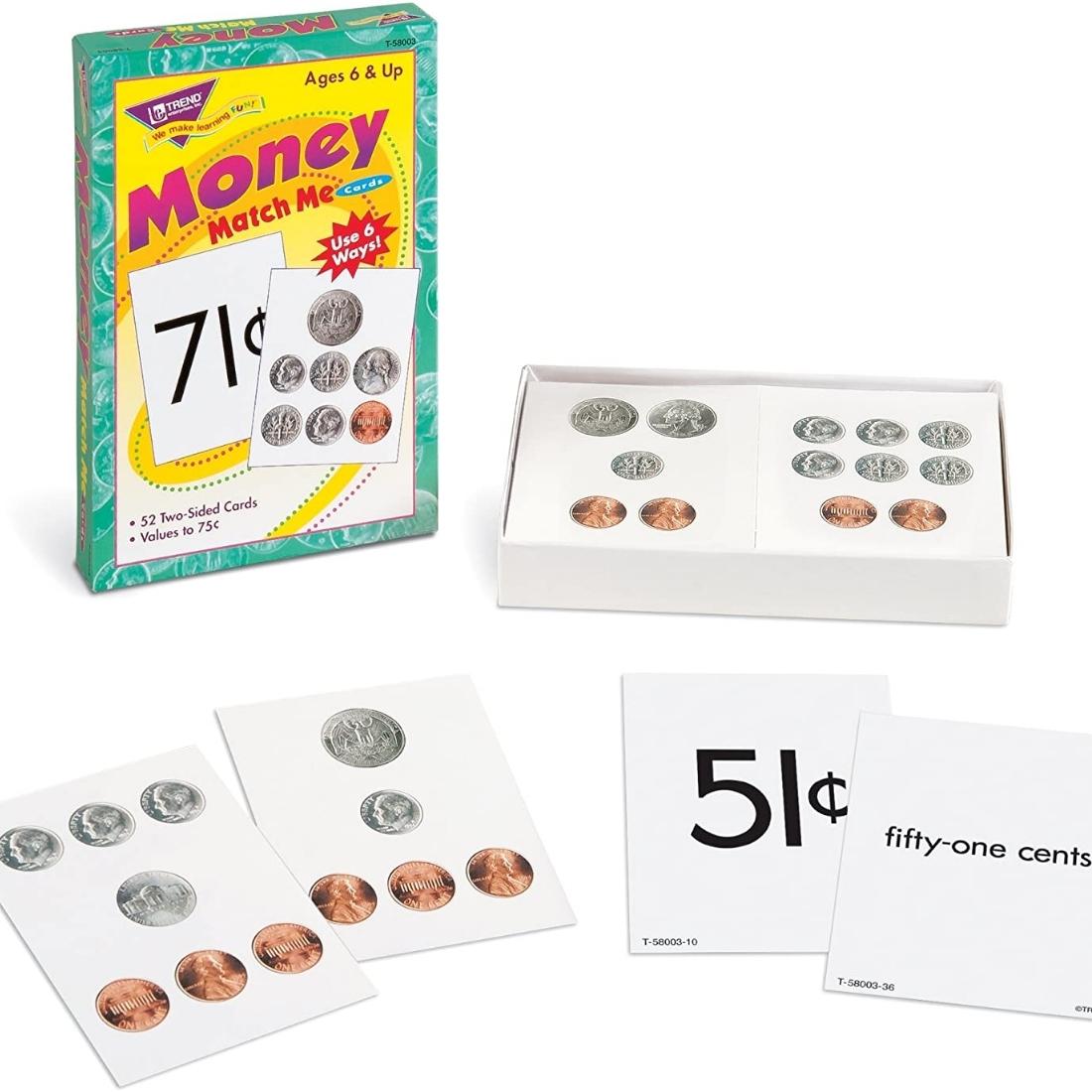
Ages: 6+
Players: 1-2
Help your kiddo get a good grasp of different currency, what it looks like, and how it adds up. This is great for visual learners and kids who need a refresh on what real money looks like.
Sub Shop
Ages: 6+
Players: 2-6
Players have to build unique orders from customers using 11 different ingredients. Just when you think you’ve got it down, add action cards to add extra chaos to the mix. Kids will use money and learn the importance of it.
Cashflow for Kids
Ages: 6+
Players: 2-4
Teach kids about big concepts like assets and liabilities in a game that’s as fun as it is educational. This game doesn’t just teach kids about making and spending money, but the strategies behind it as well. These are lessons that will stay with them and make a difference as they grow.
Exact Change
 $12.99
from
Barnes And Noble
$12.99
from
Barnes And Noble
Ages: 6+
Players: 2-4
Be the first to play all of your cards to win this easy-to-play, fun game. To do so, you have to match the last card played: either by color, by exact currency, or by exact change.
Ice Cream Empire
Ages: 7+
Players: 2-4
Each player is building an ice cream business and trying to beat out the competition in this fun-filled family game. The player who gets to eight stores first wins, but it will take a lot of calculating and and entrepreneurial wit to get you there.
Cover Your Assets
Ages: 7+
Players: 2-6
Build your tower of matching assets by making sets or swiping them from other players. You can swipe someone’s top set of assets, making them valuable to defend. Cover your best with even better and get to millionaire status to win.
Budget
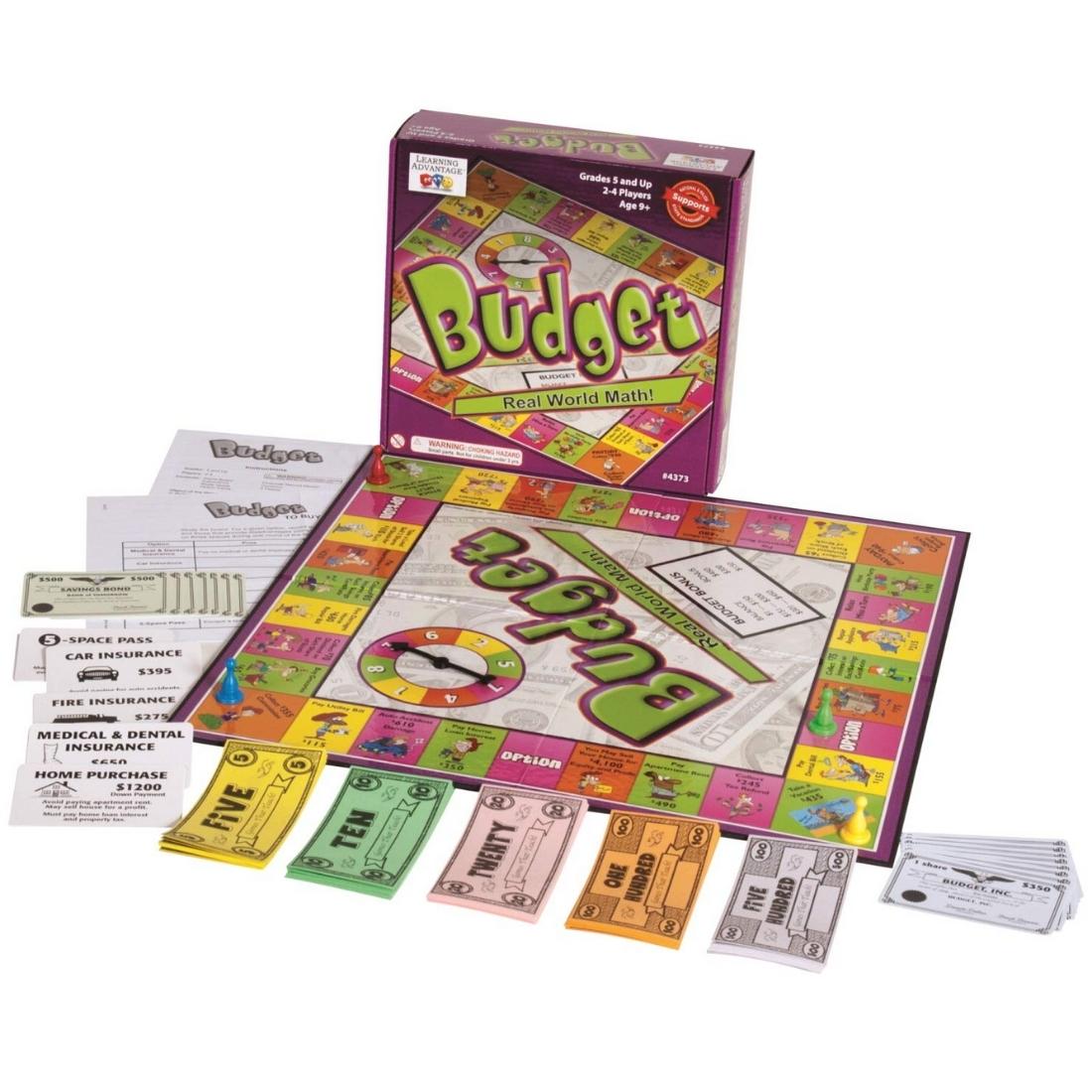
Ages: 9+
Players: 2-4
Players have to make financial decisions to balance their budgets in this game. Players plan their own budgets and then have to make them work as they make their way around the game board, earning $2,000 each time they do. The winner is the person who ends the game with the highest net worth.
GoVenture
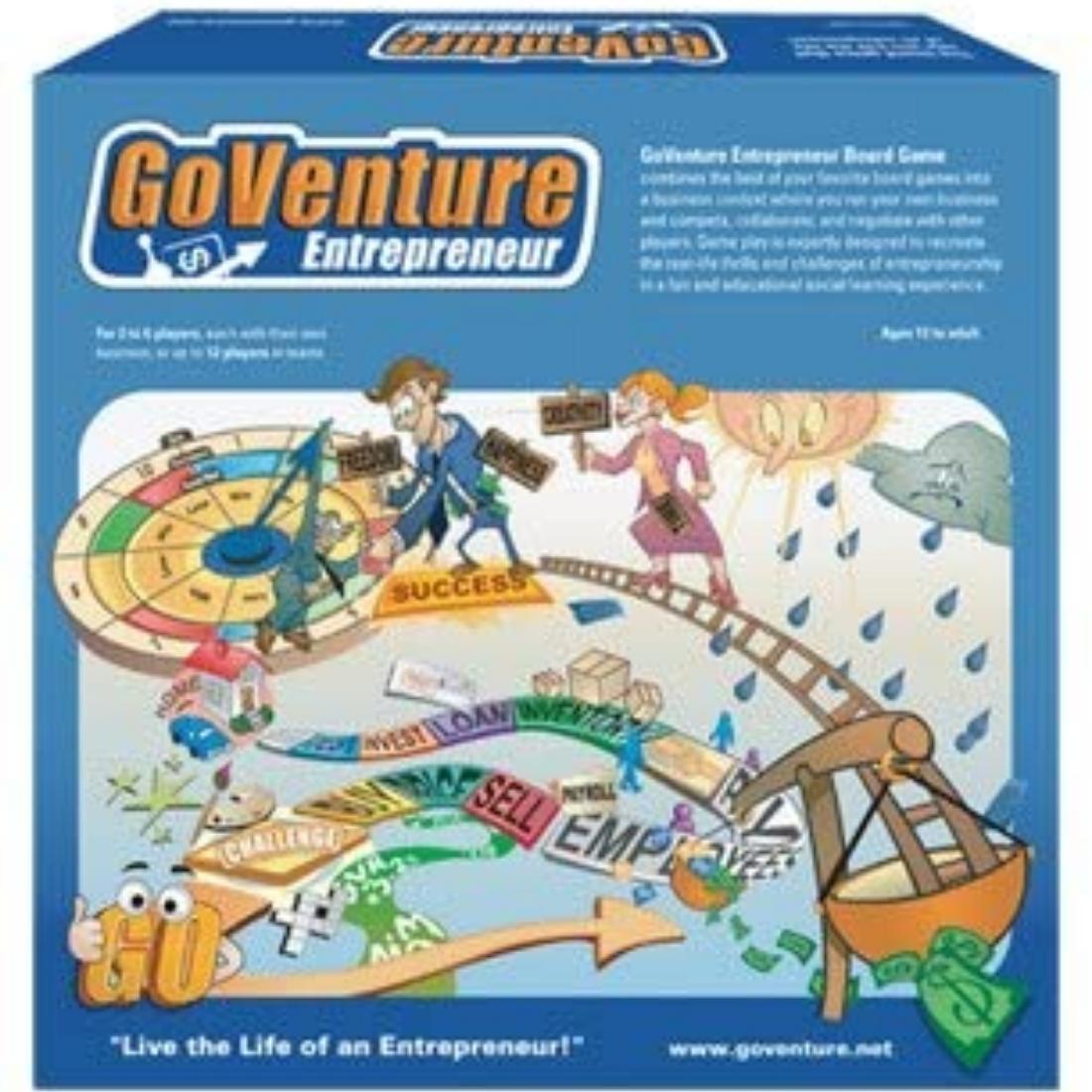
Ages: 10+
Players: 2-12
GoVenture goes deeper into the financial and entrepreneurial lessons with elements like balance sheets, profit-and-loss statements, general ledgers, and a general journal. Players will make business actions to build their business and have the flexibility to change strategies throughout the game.
Moneywise Kids
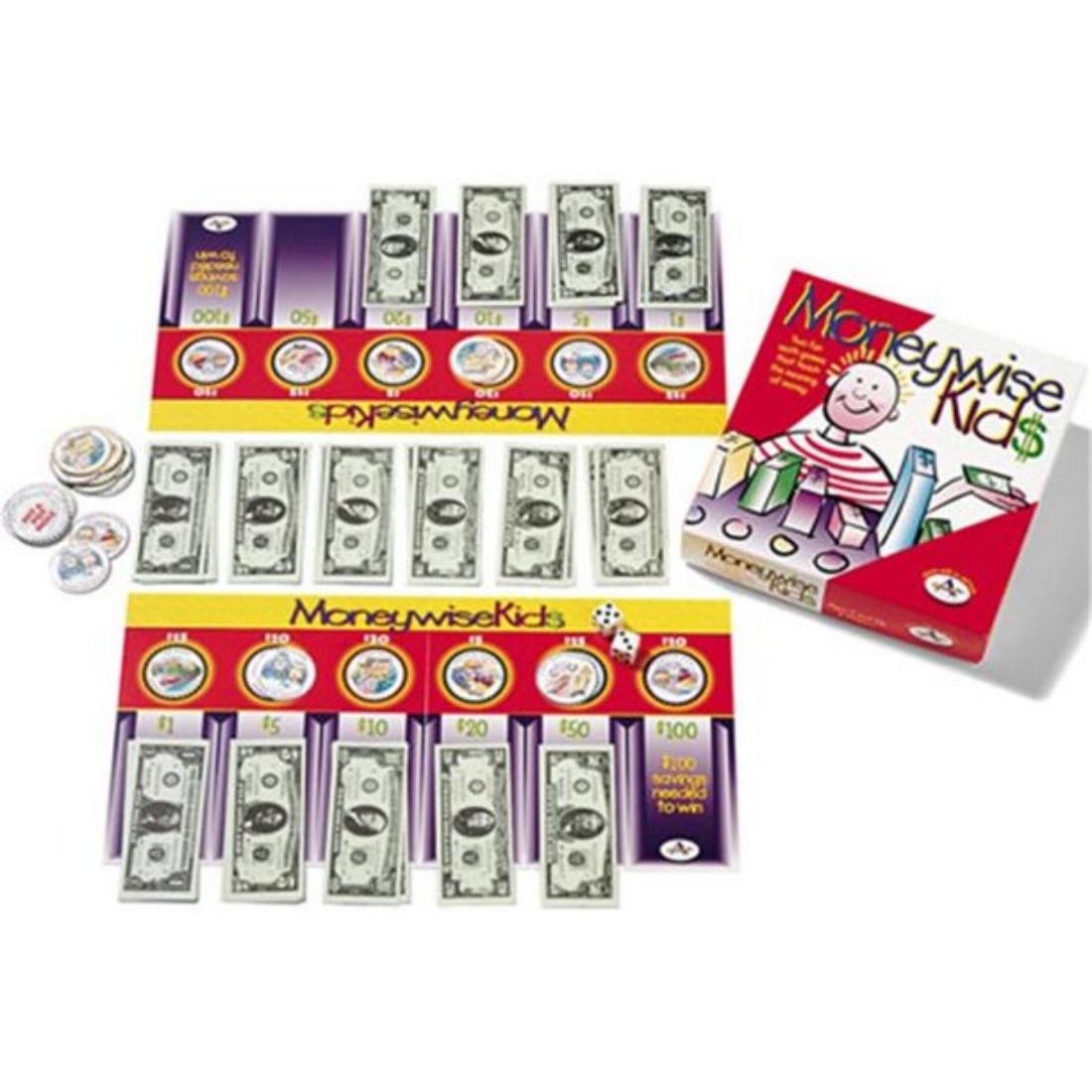
Ages: 8+
Players: 2
Teach kids about money and budgeting with this fun, quick two-player game that has two ways to play. You can play Bill Breaker and Bill Maker and get a feel for what real-life money exchanges are like.
The Game of Life
Ages: 8+
Players: 2-4
The Game of Life is an oldie but a goodie. Kids see how different decisions have different trade-offs and learn how to make the most with what they’ve got. They also get a taste of all the little surprises life has in store.
Pay Day
Ages: 8+
Players: 2
Pay Day is all about spending money, making money, and the unexpected things that make you do both. Players are trying to make it to Pay Day at the end of the month without going broke in between, and doesn’t that sound familiar?
Monopoly
Ages: 8+
Players: 2-6
Monopoly is a race to buy up the board. There’s more to it than just buying properties, as you make sets and build. Beware of other players trying to do the same.
Buy It Right
Ages: 8+
Players: 2-4
Players will set prices, buy, and sell in this game that reinforces money recognition. It will also keep players making change and making money decisions.
The Stock Exchange Game
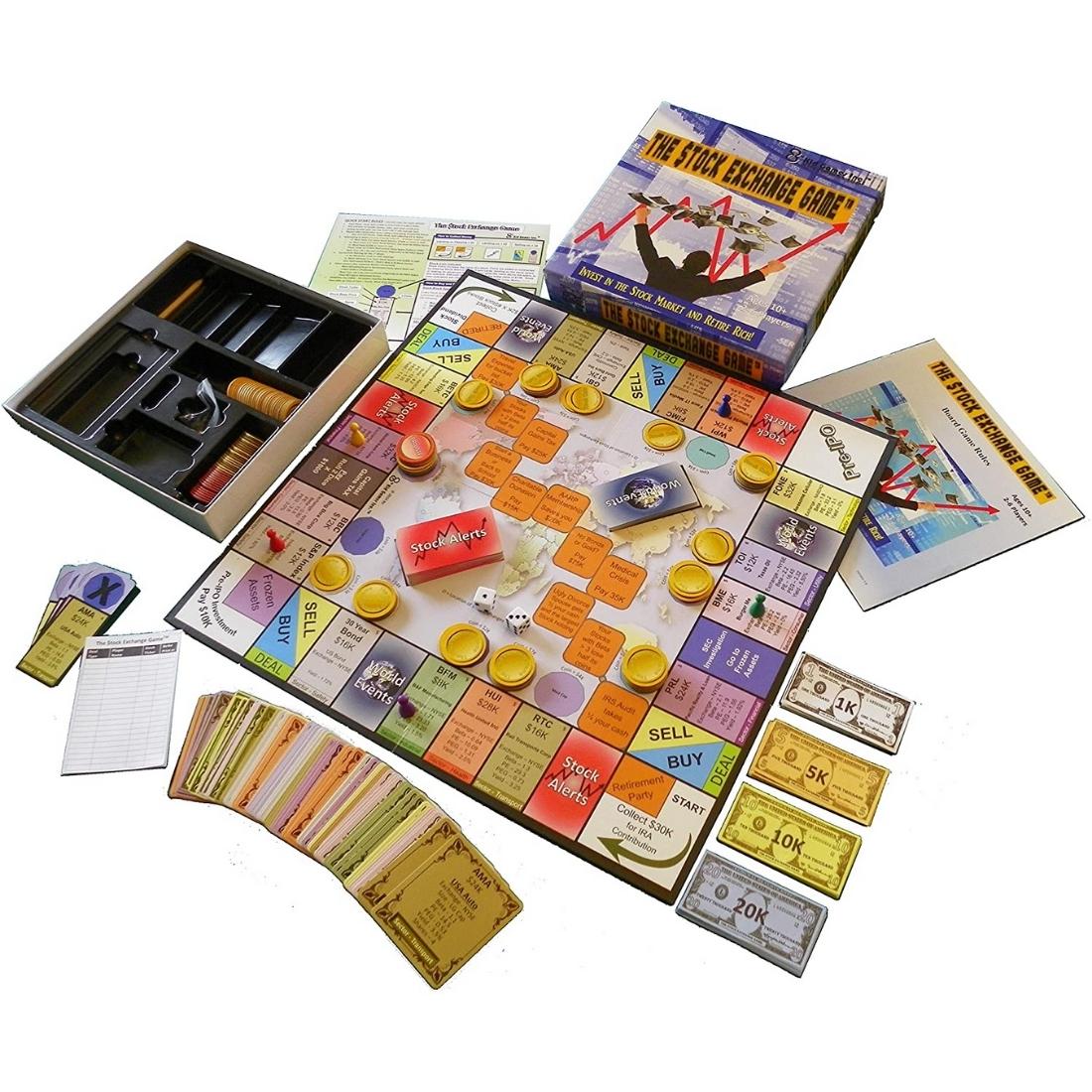
Ages: 10+
Players: 2-6
Players will learn the ins and outs of the stock market and understand the real life principles of how it works. The strategy is to play aggressive from the jump, as it’ll get harder to accumulate your wealth at the end of the game. Families say it’s like Monopoly but with some deeper goals that bring out more strategic play.
Know Opportunity
 $59.99
from
KnowOpportunity/Etsy
$59.99
from
KnowOpportunity/Etsy
Ages: 12+
Players: 2-6
Know Opportunity combines lessons about being a business owners and concepts of a global market to give some more real-world context to some of those social studies and economics lessons.
Thrive Time
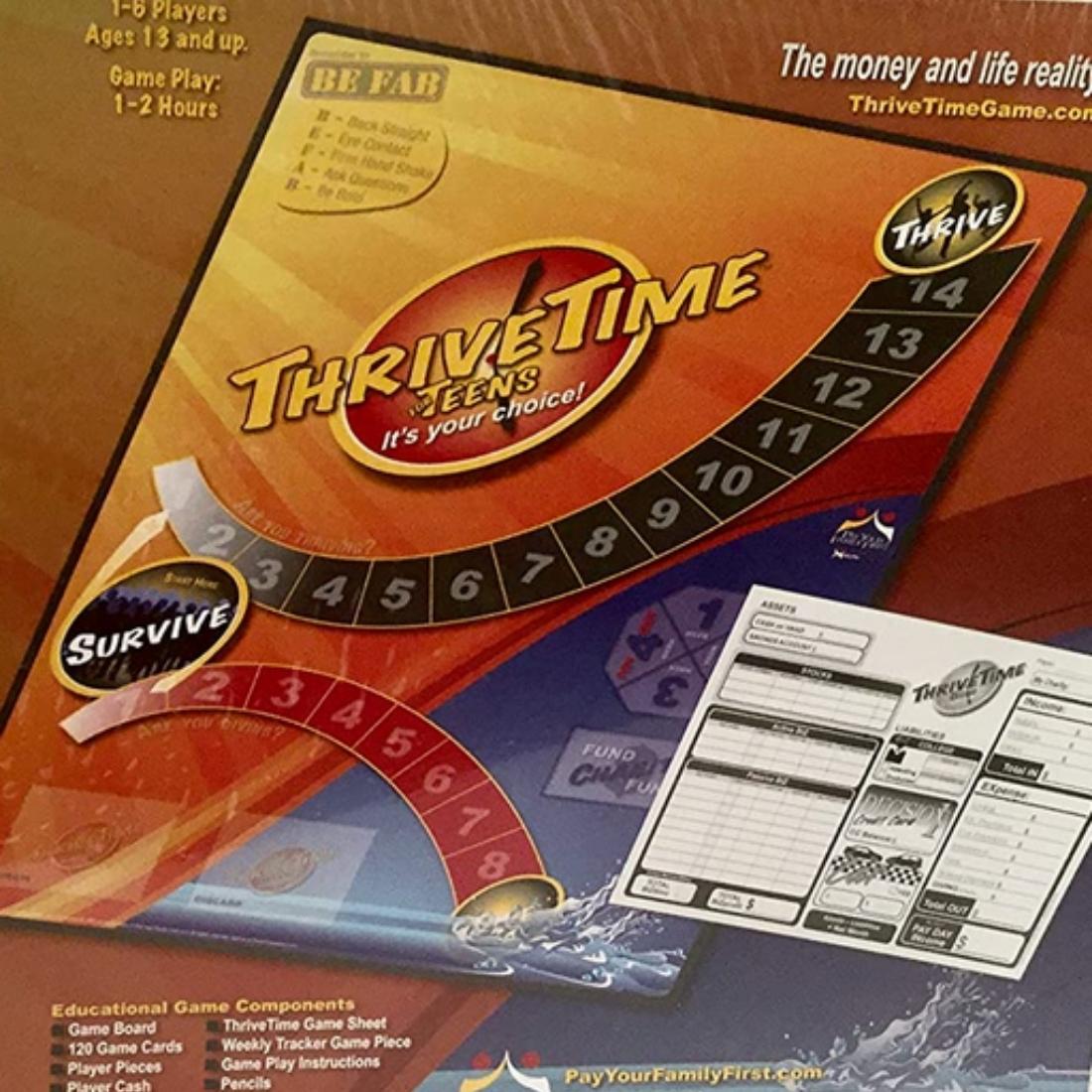
Ages: 13+
Players: 1-6
This unique game puts players in the place of a high school student. You have to organize both time and money to progress and every decision can make a difference. The first player to the Thrive space wins.
CashFlow
Ages: 13+
Players: 1-6
Older kids can handle the full version of CashFlow. Players will pick a dream and work toward it by making deals, earning money, investing, and giving back. It will give kids a realistic idea how individuals strive to manage their finances to get ahead.
Franklin's Fortune
Ages: 13+
Players: 1-6
This deck-building game has players trying to beat one another out to acquire as much as possible of Franklin’s Fortune, composed of cards and currency. Each turn has players use energy, sterling, and persistence to acquire as much as they can.







